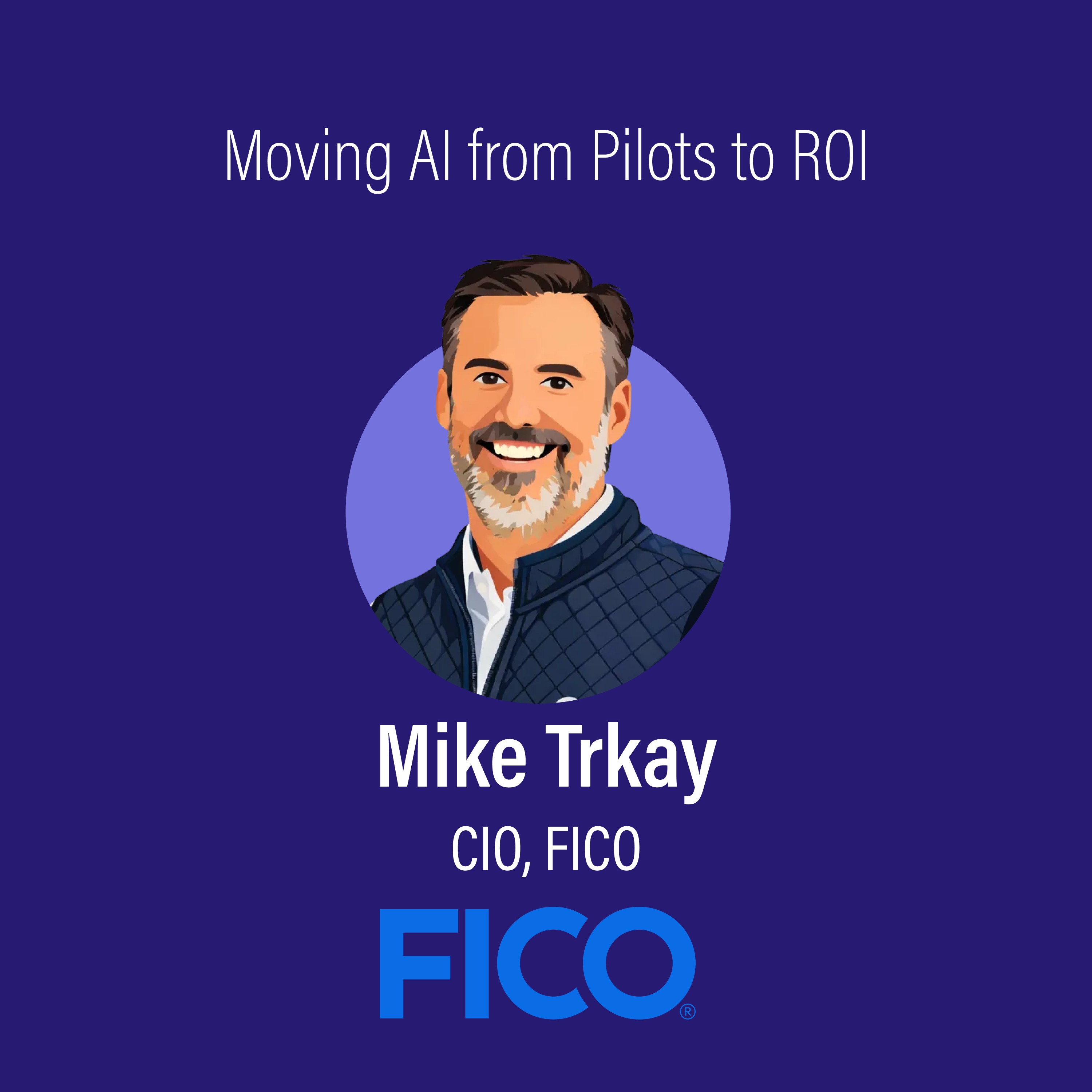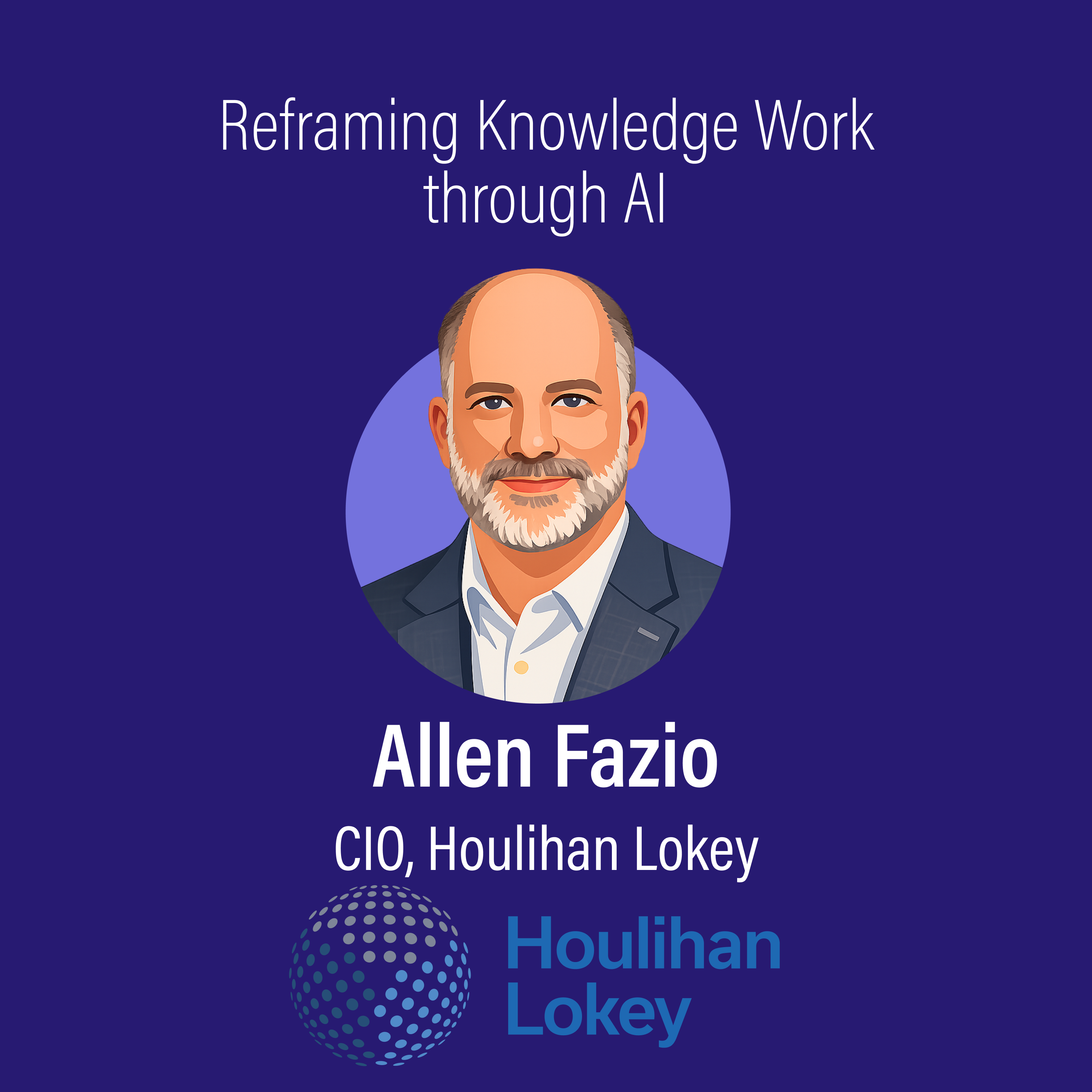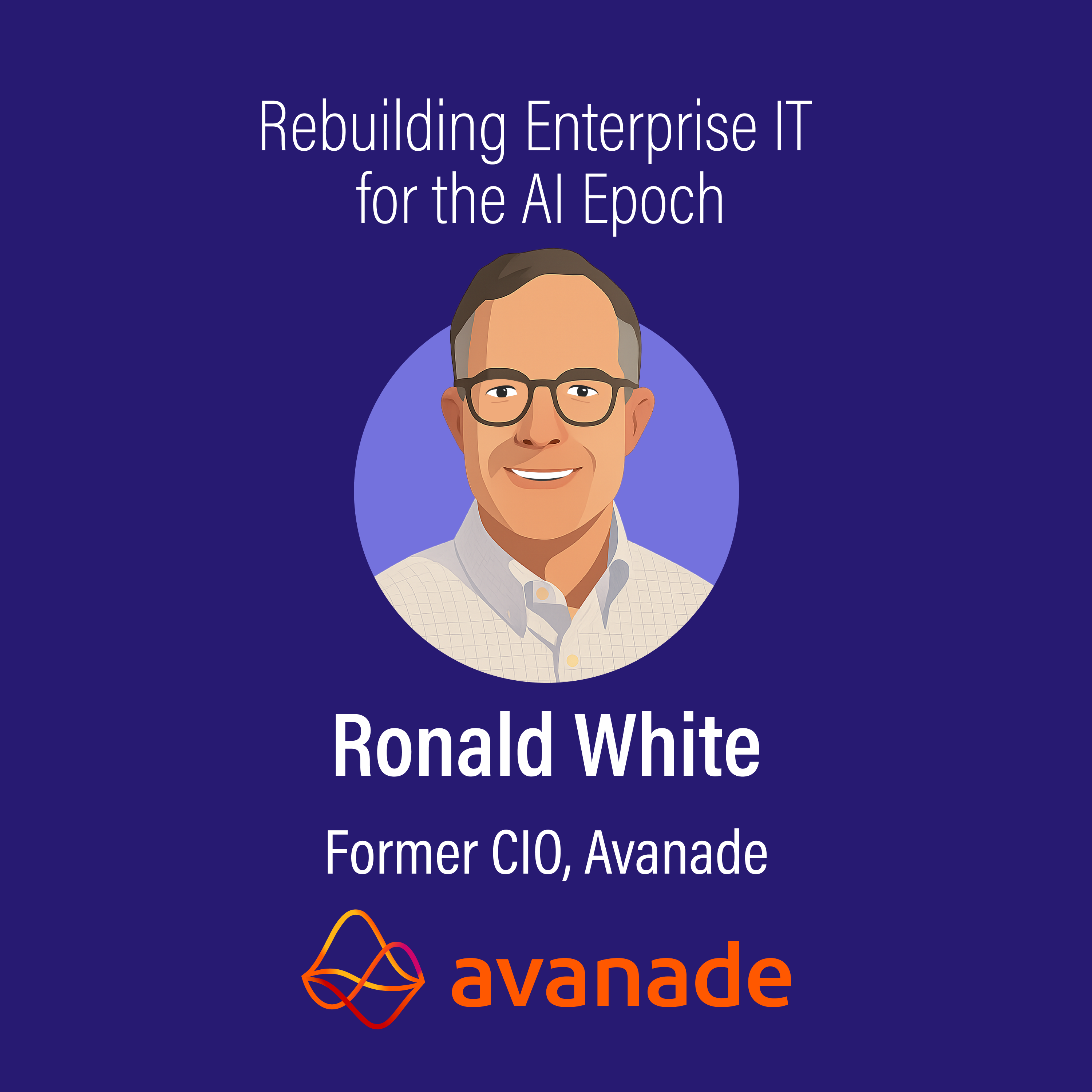How Western Digital Balances AI, Automation, and 24/7 Operations
On the 50th episode of Enterprise AI Innovators, hosts Evan Reiser (Abnormal Security) and Saam Motamedi (Greylock Partners) talk with Sesh Tirumala, Senior Vice President and Chief Information Officer at Western Digital. Western Digital is one of the world's largest data storage manufacturers, with over 51,000 employees, 13,000 patents, and $13 billion in annual revenue. From enterprise data centers to high-performance hard drives for creative professionals, Western Digital has been a storage pioneer for over 50 years. In this conversation, Sesh offers insights into practical applications of AI in enterprise productivity, the critical role of IT in global manufacturing, and the future of IT architecture to enable business transformation.
For Sesh, IT's primary role at Western Digital is to ensure seamless, always-on operations—especially across the company's vast global manufacturing network. Even minor system disruptions in large-scale manufacturing can have significant financial and operational consequences, impacting production lines, supply chains, and customer deliveries. With factories spanning Malaysia, Thailand, China, Japan, and the Philippines, Western Digital operates on a 24/7 production cycle, where IT must constantly monitor and optimize system performance to prevent downtime. This responsibility extends beyond maintaining uptime because it requires a proactive approach to ensuring that critical factory systems, from automated production lines to order processing and logistics platforms, remain fully operational. IT is crucial in orchestrating data flow, integrating systems across geographies, and providing real-time visibility into operations. As Sesh puts it, 'For me, what's most important as CIO is the heartbeat of operations—are factory systems running? Are orders processing? Are shipments happening?' Focusing on reliability first, IT supports day-to-day operations and creates the foundation for long-term transformation. "If you don't do the basics, you don't get a seat at the table for transformation." By maintaining high availability and operational efficiency, IT earns the right to drive innovation that impacts the business at scale.
Sesh views AI as a tool that, when applied thoughtfully, can significantly enhance productivity and decision-making across the enterprise. While many organizations struggle to find tangible AI-driven improvements, he highlights two areas where AI has already delivered value at Western Digital: intelligent meeting management and enterprise search. "The number of meetings we sit in is insane," he notes. "AI tools like Copilot help summarize discussions, generate action items, and allow teams to catch up without sitting through hours of calls." These AI-driven assistants reduce employees' time on administrative tasks, freeing them to focus on higher-value work. Beyond productivity, AI is also improving how employees access critical information. Western Digital is running a proof-of-concept with Glean, an enterprise search tool that allows employees to instantly retrieve relevant documents and contacts and process information across systems. "We spend so much time searching for things—whether it's a sales rep's contact info, a pay stub, or a product spec. AI-driven search makes it effortless," Sesh explains. However, implementing AI search has also exposed an unexpected challenge—data governance. "When you open up search and findability, you quickly realize things are being found that shouldn't be," he points out. This reinforces the need for strong security and access controls to prevent sensitive information from being exposed as AI-driven search becomes more pervasive. For Sesh, these real-world applications highlight both the promise and complexity of AI in the enterprise. While AI is a valuable tool for boosting efficiency, it also raises new governance challenges that businesses must proactively address.
Looking to the future, Sesh envisions an IT landscape where predictive analytics, automation, and modernized IT architecture are central to streamlining operations and enabling business transformation. AI-driven quality control systems are already helping Western Digital improve production efficiency in manufacturing. "If you're producing 100 widgets on a line, you want a 100% pass rate. AI helps predict failures before they happen, whether through visual inspections or defect pattern recognition," he explains. However, transformation goes beyond AI alone; Sesh sees IT architecture as the backbone of a frictionless enterprise, where systems are seamlessly connected, data is accessible in real time, and business processes are largely automated. Today, legacy ERP systems remain a challenge. "ERP is still a beast—expensive, hard to change, and home to the crown jewels of company data," he says. In his view, the future will be lighter, more modular enterprise systems that reduce complexity, automate routine tasks, and free up employees for strategic work. Sesh describes his vision as one where employees no longer have to engage with IT for routine requests—everything should be intuitive, automated, and self-service. "Success is managing by exception, not transaction." By modernizing IT architecture and leveraging AI-powered automation, Western Digital aims to create a more agile, data-driven organization that is both efficient and scalable in an increasingly competitive global market.
Western Digital's approach highlights the power of combining strong IT fundamentals with AI-driven innovation and modernized IT architecture. Sesh's philosophy is straightforward: IT must ensure reliability and leverage AI and automation to drive efficiency and transformation. By focusing on always-on operations, practical AI applications that enhance enterprise productivity, and the modernization of IT architecture to create a frictionless business environment, Sesh provides a roadmap for how organizations can evolve. AI continues to reshape enterprise workflows, and Sesh's pragmatic advice resonates: governance matters, data readiness is key and incremental progress often beats big bets. "There's no single silver bullet," he says. But if you focus on performance first, transformation frequently follows.





